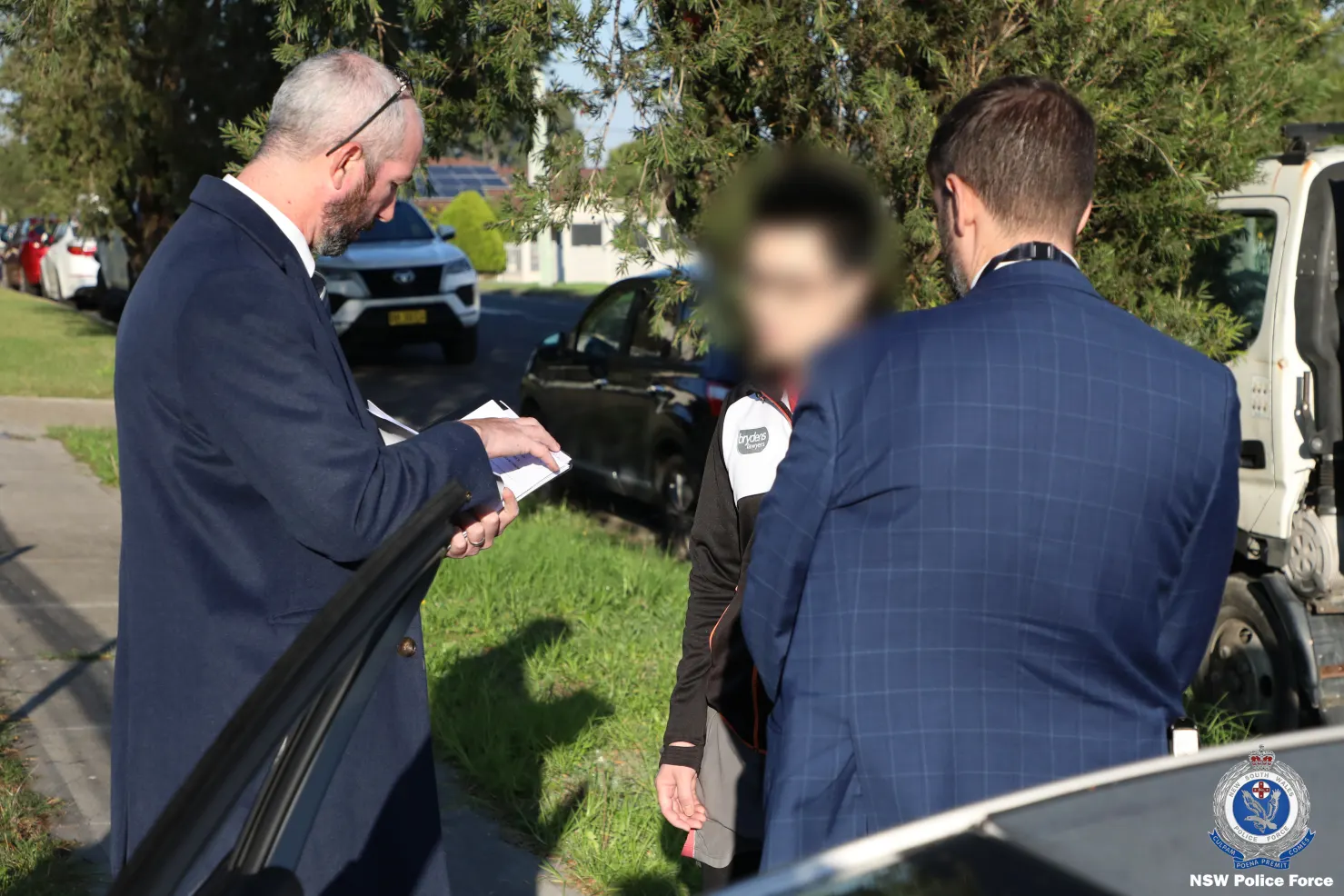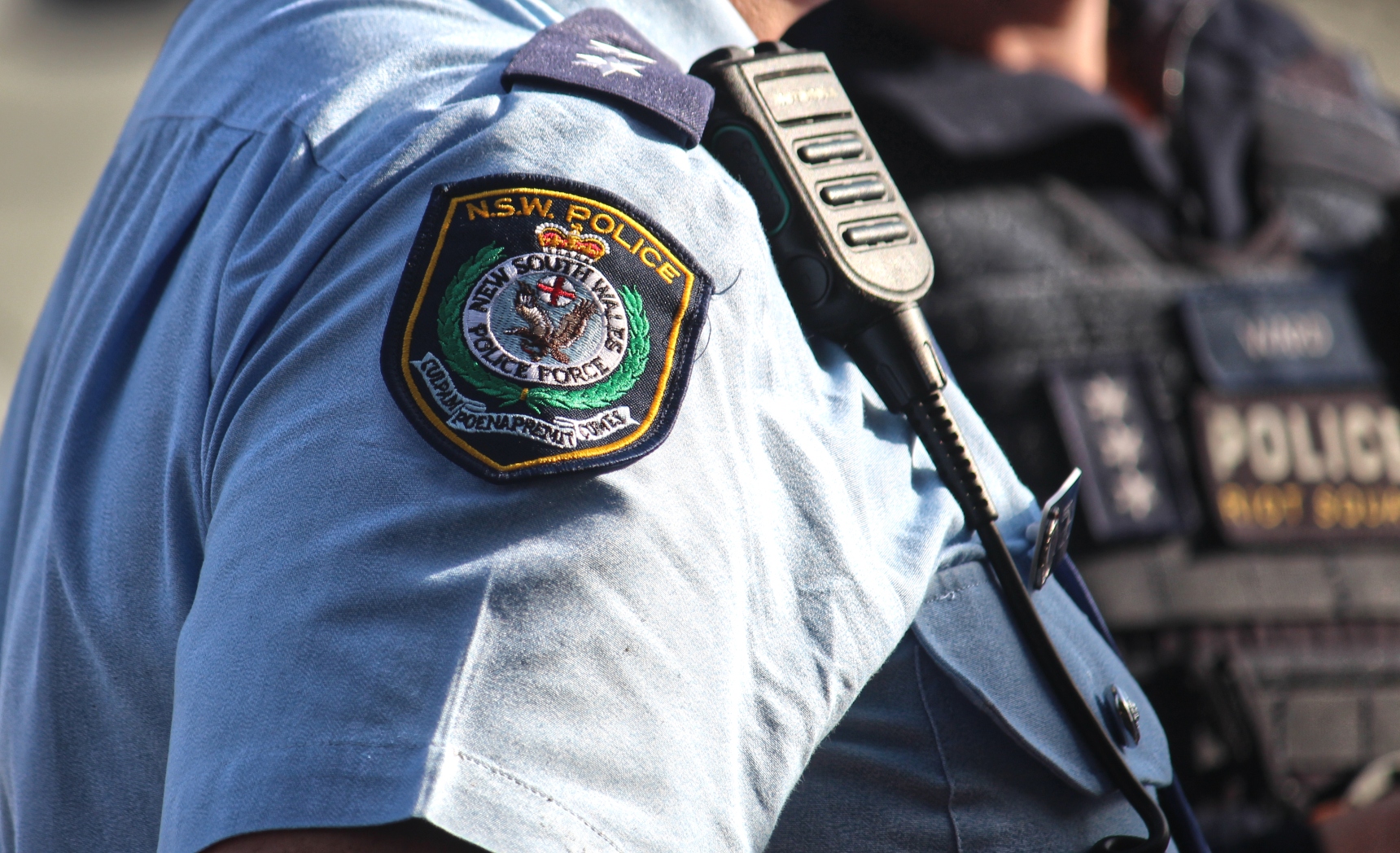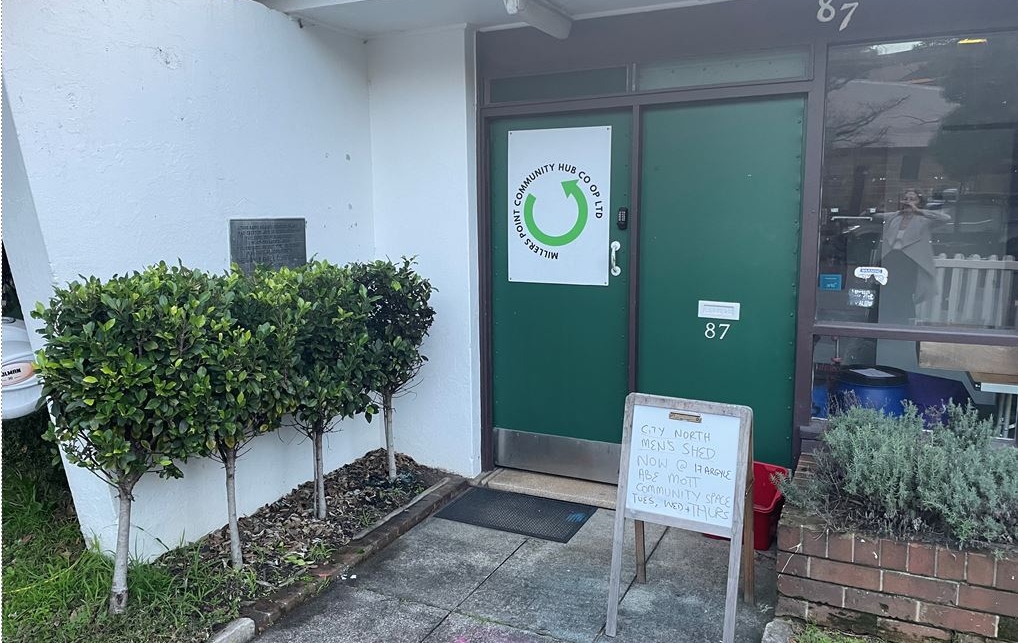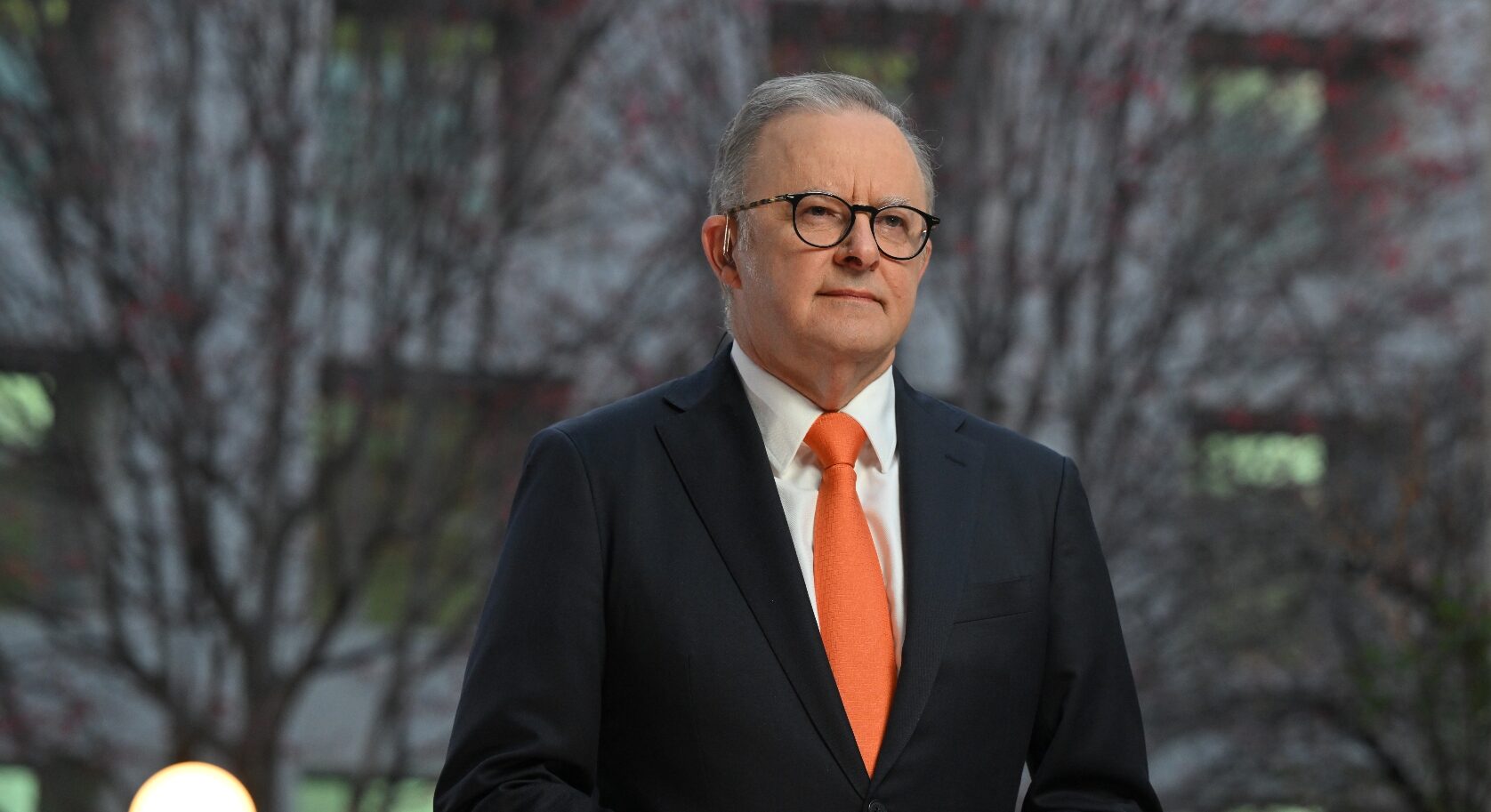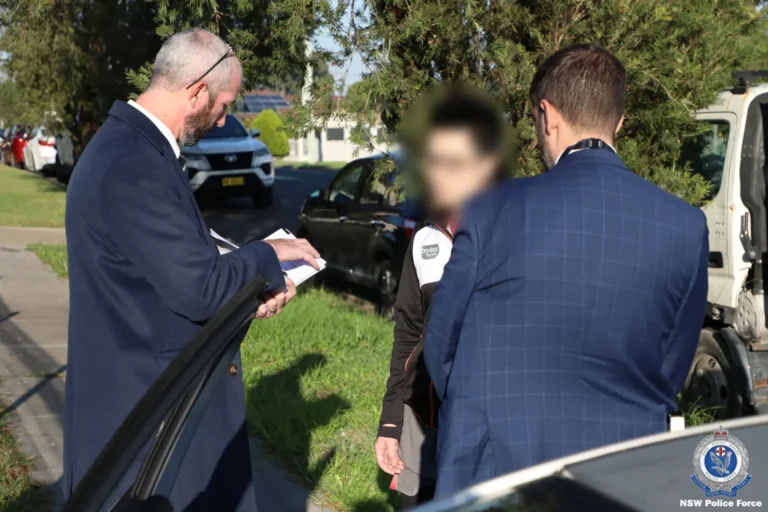
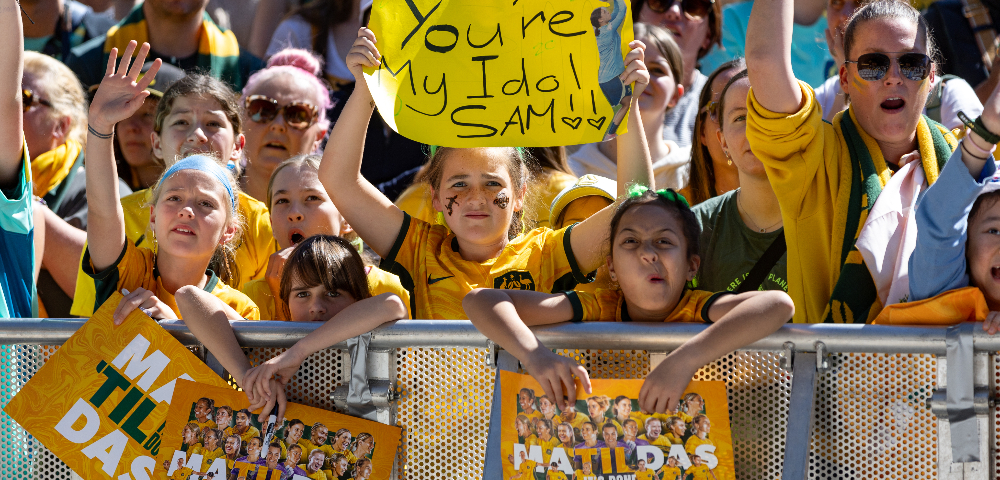
By CHRISTINE LAI
The 2023 FIFA Women’s World Cup has left an indelible mark on the global sporting landscape with Australia’s national women’s soccer team, The Matildas, taking centre stage, pushing advancements in women’s sports, smashing viewership records and cementing a place for themselves in history.
A closer examination of the data unveils a striking accomplishment in captivating the audience’s attention across the nation.
As one of the host cities, Sydney attracted 603,957 passionate fans to the 11 FIFA Women’s World Cup 2023 games held over the past month. This number represented one third of the 1.9 million fans who attended matches throughout the biggest tournament of its kind to date.
The FIFA Women’s World Cup held screenings at various locations across the nation with the largest Fan Festival located within Tumbalong Park at Darling Harbour. This event emerged as the best attended across the nine host cities, attracting 250,084 fans.
Before the Women’s World Cup
Prior to the FIFA WOMEN’S World Cup, the highest attended Matildas match held on home soil saw 36,109 fans pack into Stadium Australia.
The Australian team broke a 21-year record with the highest ever crowd for a women’s football match in November 2021 against the world number one women’s team, the United States.
From August 4, 1.7 million tickets were sold in 2023, smashing the previous Women’s World Cup ticket record of 1.35 million set by Canada in 2015.
Earlier this month, Nike, the official apparel sponsor of Football Australia, confirmed a surge of “record-breaking” demand for the Matildas’ team jerseys.
Asia-Pacific general manager of Nike Ashley Reade described this year’s tournament as a “generational moment for sport and culture, and never has this been more strongly reflected than the past week”.
“To see Australians of all ages rally around the Matildas is a catalysing time for women’s sport and these unprecedented jersey sales only cement their status as national icons”, Reade said.
According to Nike, the Matildas have sold more jerseys this year leading up to the FIFA Women’s World Cup than the men’s team did during the whole of last year, including the 2022 FIFA World Cup in Qatar.
Smashing viewership records and making history
The Matildas have smashed viewership records with the semi-final match of the FIFA Women’s World Cup between Australia and England captivating the nation and drawing an extraordinary viewership of over 7 million Australians on free-to-air TV.
Throughout the riveting 90 minutes of gameplay, the audience turnout peaked at 11.15 million Australians, representative of over 43 per cent of the population.
This figure far exceeds the viewership numbers for State of Origin games and NRL and AFL grand finals.
Minister for Jobs and Tourism John Graham described the FIFA Women’s World Cup as one of the biggest events in Australia since the 2000 Sydney Olympic Games, and that it “was a record-breaking world cup that will be remembered for generations to come”.
“Our stadium crowds averaged 97 per cent capacity across the 11 Sydney matches, showing unprecedented support for women’s sport and the FIFA Women’s World Cup 2023”, Minister Graham said.
According to Optus Sport, the official broadcaster of the FIFA Women’s World Cup 2023, the social video views of WWC23 Optus Sport content in Australia is now over 65 million and the average viewing time of WWC23 Content by Optus Sport subscribers is now over 20 hours.
The Matildas’ semi-final clash with England is officially the most-watched TV event in Australian history and breaks the all-time record of 8.8 million who watched Cathy Freeman’s iconic gold medal run in the 400m at the Sydney Olympics in 2000.
The future of the Matildas
Managing director of Brand Finance Australia Mark Crowe said the Matildas brand now surged past all other national sports teams and even stands in competition with significant corporate brands.
“They are now a very strong brand in the world of football and when you’re looking at their strength in Australia, they’re up there with some of the country’s strongest commercial brands”, Crowe told The Guardian.
A rescued female Platypus puggle being cared for at Sydney’s Taronga Zoo has even been named ‘Matilda’, paying tribute to the awe-inspiring accomplishments of Australia’s beloved women’s soccer team during their record-breaking run at the FIFA Women’s World Cup 2023.
Bridget Mooney, a fan who has attended every Matildas match in Sydney since 2021 before the FIFA Women’s World Cup compared their experience over the last few years, stating “Audience engagement now isn’t just about who’s attending the matches, it’s also important to look at the social, economic and media engagement as well. You weren’t seeing nearly as much press coverage of matches, upcoming or post-match interviews.”
“Before the cup women’s sports was often on the back burner, it was overshadowed by men’s experiences or men’s events but now it’s being given its own limelight and hopefully this means a new generation of women will emerge and the current girls will see a future in their own athleticism”, Mooney said.
Social Engagement
Football league website Keep Up reported Matildas players’ Instagram follower growth with Mary Fowler’s follower count surging by an impressive 466%, reaching an additional 222,000 followers.
Matildas goalkeeper Mackenzie Arnold’s followers have grown by 424%, contributing to an overall count of 221,000 followers.
The surge in Instagram fame is indicative of the players’ influence as sports icons, with a rise in recognition amplifying the message of equality in sports. The increased visibility and engagement bode well for a more inclusive and promising landscape for women’s sports.
Captain Sam Kerr has recently declared a need for more funding in the development of women’s football, following the end of the Matildas journey at the World Cup.
“I can only speak for the Matildas [but], you know, we need funding in our development, we need funding in our grassroots. We need funding, you know, we need funding everywhere,” Kerr said.




